
- Home
- India
- World
- Premium
- THE FEDERAL SPECIAL
- Analysis
- States
- Perspective
- Videos
- Sports
- Education
- Entertainment
- Elections
- Features
- Health
- Business
- Series
- In memoriam: Sheikh Mujibur Rahman
- Bishnoi's Men
- NEET TANGLE
- Economy Series
- Earth Day
- Kashmir’s Frozen Turbulence
- India@75
- The legend of Ramjanmabhoomi
- Liberalisation@30
- How to tame a dragon
- Celebrating biodiversity
- Farm Matters
- 50 days of solitude
- Bringing Migrants Home
- Budget 2020
- Jharkhand Votes
- The Federal Investigates
- The Federal Impact
- Vanishing Sand
- Gandhi @ 150
- Andhra Today
- Field report
- Operation Gulmarg
- Pandemic @1 Mn in India
- The Federal Year-End
- The Zero Year
- Science
- Brand studio
- Newsletter
- Elections 2024
- Events
- Home
- IndiaIndia
- World
- Analysis
- StatesStates
- PerspectivePerspective
- VideosVideos
- Sports
- Education
- Entertainment
- ElectionsElections
- Features
- Health
- BusinessBusiness
- Premium
- Loading...
Premium - Events
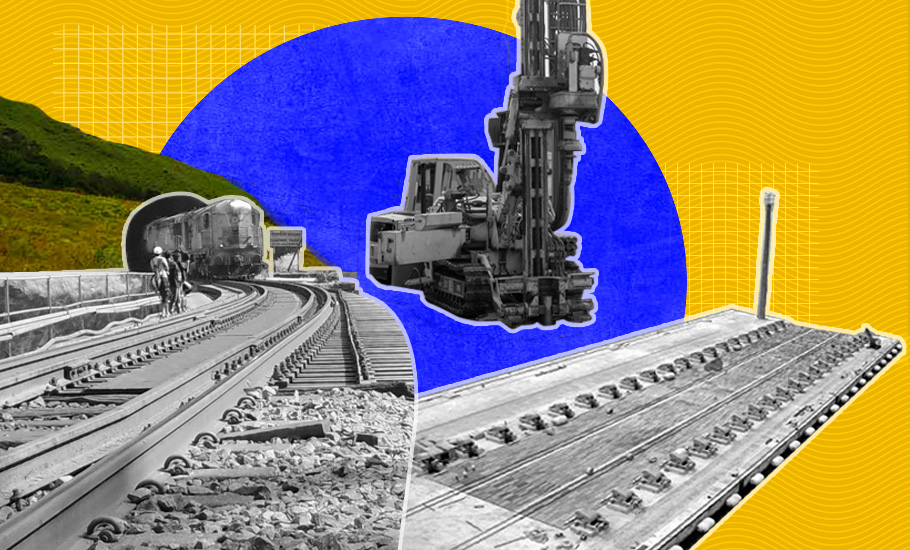
Development projects spell doom for Western Ghats

Septuagenarian Leelavathi Bommayya Naik cannot imagine living a life outside her village Manjuguni in Uttara Kannada district of Karnataka along the Western Ghats. She has been living in a small patch of land with three of her brothers and their families for over seven decades. The area is home to around 1,500 people who harvest paddy, groundnuts and salt, and is situated a kilometre from...
Septuagenarian Leelavathi Bommayya Naik cannot imagine living a life outside her village Manjuguni in Uttara Kannada district of Karnataka along the Western Ghats.
She has been living in a small patch of land with three of her brothers and their families for over seven decades. The area is home to around 1,500 people who harvest paddy, groundnuts and salt, and is situated a kilometre from the origin of Gangavali river amid lush green forests.
Now, all that is under threat. The central government, they were told amid the pandemic and monsoon, is planning to develop Asia’s biggest naval base in their area.
Titled Project Seabird, a part of INS Kadamba naval base in Karwar-Ankola region, the ‘development project’ will consume Manjuguni and five other villages including Honnebail and Shinganamakki in their panchayat.
While some victims of the first phase of the project are still fighting with the government over compensation and rehabilitation, the news of Seabird project expansion has shocked the villagers.
While a formal notice is yet to be served, a mere oral communication has led to a chaos in the village. The local administration says they were asked to survey the land and trees in the villages as part of the project plan.
Some of the farmers and fisherfolk, who lost houses and crops to last year’s heavy rains are yet to recover from their losses. And the news of the project came as they were rebuilding their houses with the hard-earned money.
“We are ready to give our lives, but not our land. This green cover is home to us and we cannot let development projects destroy our ecology,” Naik says.
She and about 500 others in surrounding villages have formed a committee to fight for their land and oppose government projects. While she’s not opposed to development, she’s only concerned about the damages to Western Ghats that’s been her home for decades.
Another villager, Laxman Harikant laments that it took nearly a decade to just get an approval for a small bridge across the river connecting Manjugui to Gokarna. Villagers used ferry service to cross the river to reach Gokarna, a tourist and commercial centre, five kilometres away. The rains however deprive them of the ferry services, and they are forced to take a 32-km longer route by bus.
“If their purpose was development, they should have constructed the bridge across the river and helped the villagers. How can uprooting us from our native land be considered development?” she asks. The bridge, approved last year, is still not complete.
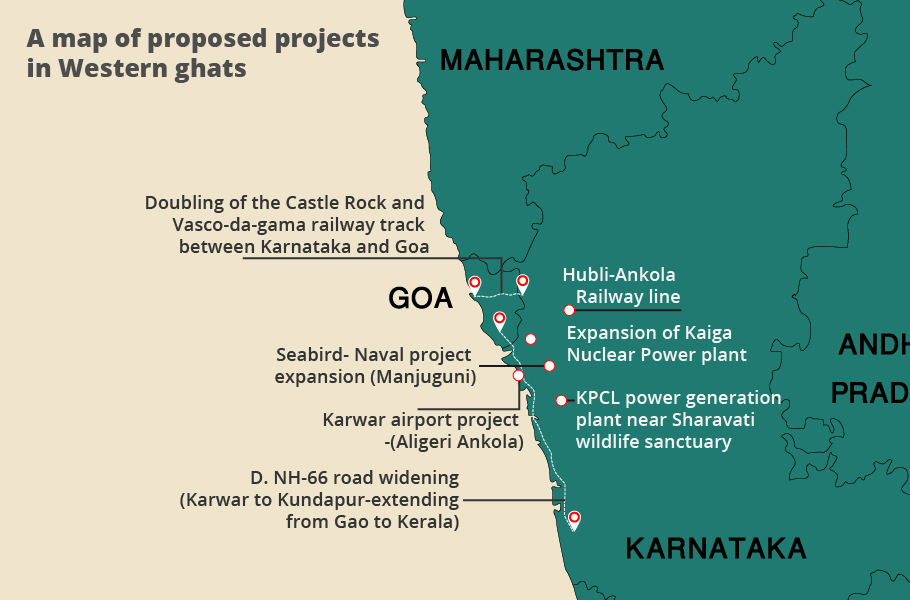
Development vs destruction
The naval base is just one of the many development projects that are coming up in the region on Western Ghats. About 10 kilometers from Manjuguni in Aligeri villages, villagers are set to lose land for the newly approved civil airport that plans to tap the tourism sector for economic upliftment. The site for the proposed airport is on 97.1 acres of land in Ankola taluk.
Another large project is the 168-km broad gauge Hubli-Ankola rail line, approved by the Karnataka government, although it has been stayed by the Karnataka High Court as it was contended to be ecologically disastrous.
The project proposes to divert 595.64 hectares of forest land in Karwar-Yellapura and Dharwad for the construction of railway lines. It would necessitate the felling of nearly 2.2 lakh trees.
The controversial project got Karnataka State Wildlife Board (KSWB)’s nod on March 20 in a hurried manner even as a Supreme Court-appointed committee had rejected it on environmental grounds.
Since its inception in 1997-98, the rail link has attracted severe criticism for the ecological damages to the Western Ghats. If implemented, the project will cut through Kali Tiger Reserve and Bedthi Conservation Reserve besides impacting the Hornbill Conservation Reserve.
A couple of power projects too have been approved in the eco-sensitive zone. In all, there are nearly 12 development projects that are either proposed or approved over the past few months.
As reported by The Federal earlier, the Karnataka Power Corporation Limited (KPCL) is set to begin a geotechnical survey inside the Sharavathi lion-tailed macaque (LTM) wildlife sanctuary, to set up a 2,000 MW pumped storage power plant that is expected to destroy a pristine forest.
Former state forest secretary and chairman of the Bangalore Environmental Trust (BET), Dr AN Yellapa Reddy had told The Federal that the project would entail burning coal and polluting the environment and hence, the damages would override the benefits.
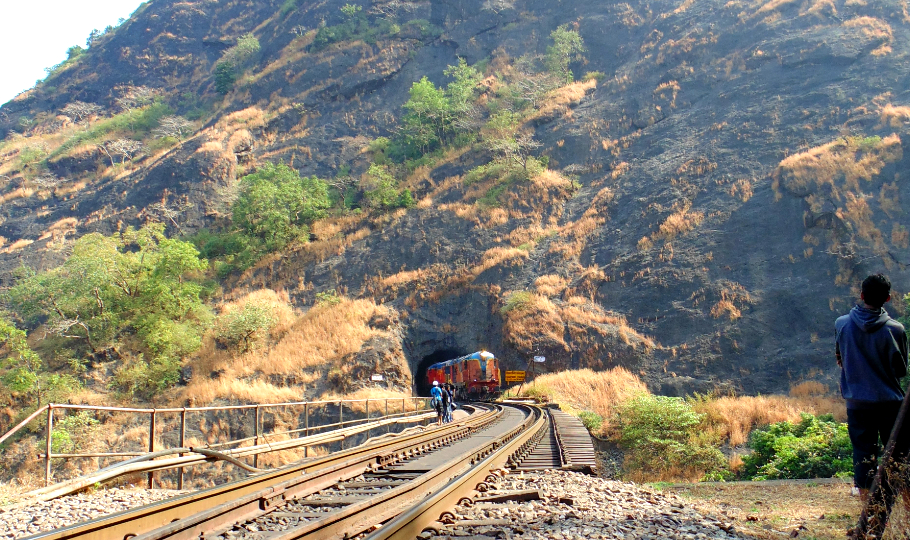
Super-rich in biodiversity
Older than the Himalayas, the Western Ghats, with rich biological diversity, influence the Indian monsoon weather pattern and is recognized as one of the world’s eight ‘hottest hotspots’ of biological diversity. It spreads across Kerala, Tamil Nadu, Karnataka, Goa, Maharashtra and Gujarat and is home to 325 globally threatened flora, fauna, bird, amphibian, reptile and fish species.
In fact, the Hubli-Ankola rail line will imperil a rare species of tree — Nothapodytes nimmoniana — known for its anti-cancer properties. The tree species available in the Western Ghats is considered vital in the international pharmaceutical market.
The rail line passes through a variety of landscapes with high tree density. An expert committee appointed by the National Tiger Conservation Authority (NTCA), in 2011 submitted its report stating the project could impact the overall floristic diversity comprising 43 families, 134 species of trees, 29 species of mammals, 256 species of birds. The major species identified in the project area include tiger, leopard, sloth bear, gaur, sambar, chital, mouse deer, common giant flying squirrel, Malayan giant squirrel, among others.
Overriding opposition
Despite the impact assessment indicating long term negative implications on most parameters, the state still approved the project.
While the government (Jagadish Shettar, minister for large and medium scale industries, Karnataka) argues that the state will consider compensatory afforestation to mitigate the impact of tree felling, it doesn’t guarantee to protect the rich biodiversity. And compensatory afforestation has mostly failed at several places.
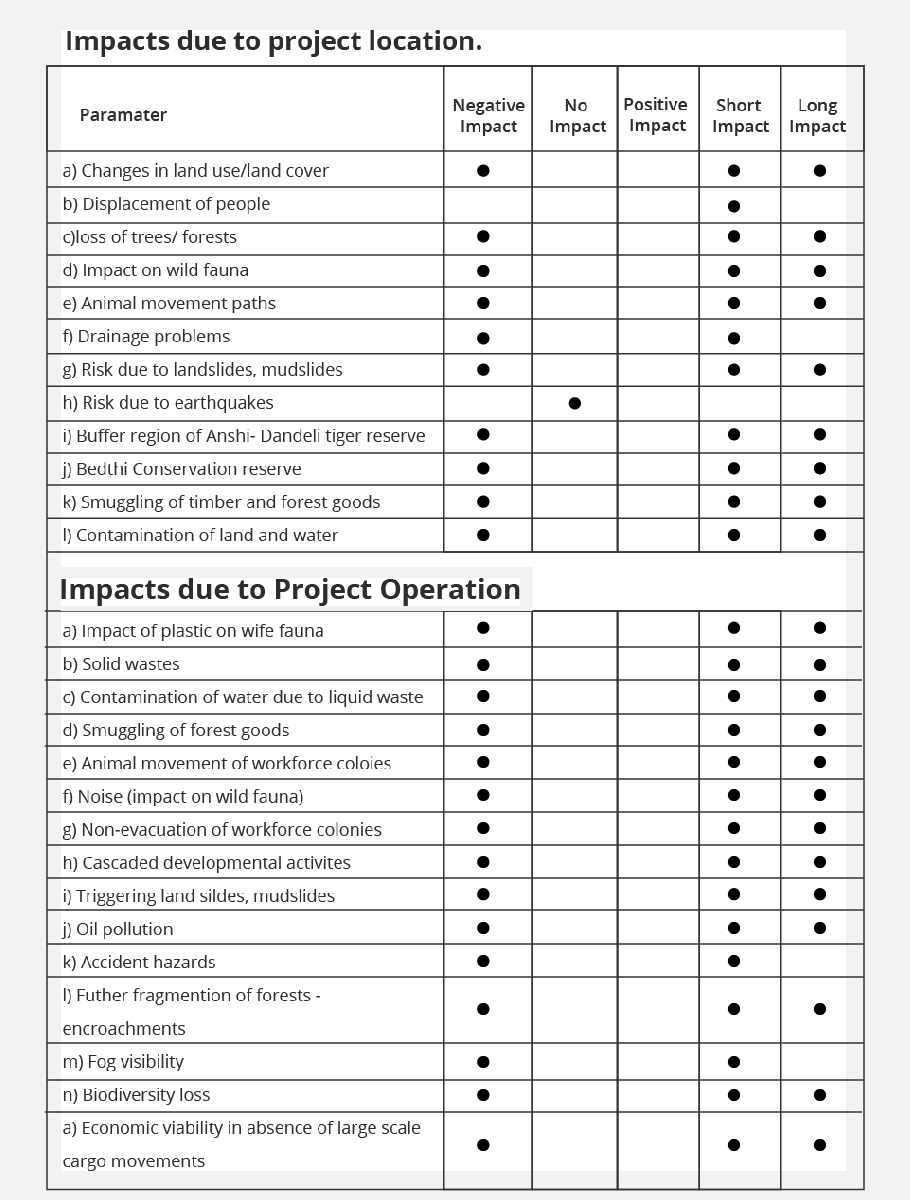
The government last year changed rules for compensatory afforestation wherein states with high forest cover, seeking diversion of forest land for non-forestry projects, can now take up afforestation in other states.
States having forests in 75% of their total land shall not be required to provide non-forest land for compensatory afforestation and this can now be carried out in another state. The decision could favour industries eyeing forest land for big development projects. But how well the afforestation in another state would be carried out is anyone’s guess.
When the project got cleared in March in the absence of the forest minister, Shettar was of the opinion that the project was required for the betterment of north Karnataka as it would bring more jobs and improve the connectivity of the region which could boost the economic activities.
Congress MLA Soumya Reddy soon quit the Wildlife board in opposition to the government’s decision.
“I have decided to resign from the state wildlife board because the board with the leadership of Hon’ble CM B S Yediyurappa has decided to implement the Hubli-Ankola Railway project which is harmful to the environment and wildlife,” she had said in a Facebook post.
“I am not against development, but I cannot support something that is harmful for the environment where there was an alternative, my conscience will not allow me to,” she had said.
Nature’s alarm bells
At a time when several states are hit by back-to-back environmental catastrophes like drought and floods, particularly in southern states, experts have repeatedly warned that meddling with Western Ghats ecology will have serious climatic implications, besides disrupting people’s lives and livelihoods.
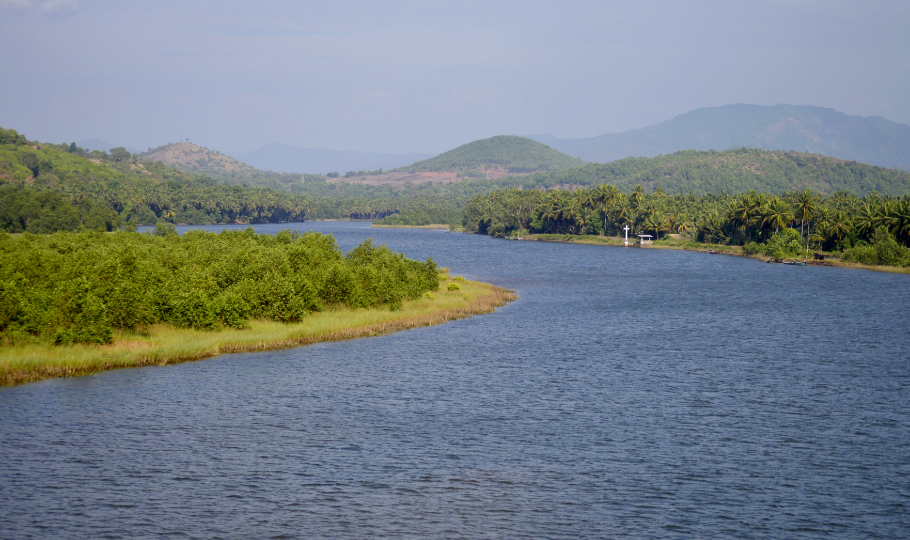
While Uttara Kannada district, home to many rivers and dense forest cover has seen success with environment-related movements in the past, the current project is likely to evoke similar reaction if the state continues to destroy the ghats.
Pandurang Hegde of Parisara Samrakshana Kendra, a Sirsi-based environment group, who founded the Appiko movement in 1983 to protect the tropical forests in the region, vowed to fight back and start a similar movement if the government implements such mega project ignoring its own environment rules.
TV Ramachandra, professor at the Centre for Ecological Sciences in Indian Institute of Science (IISc), Bangalore, argues that Western Ghats offer tremendous potential for carbon stocking with high biomass. He says they play a crucial role in mitigating the impacts of global warming.
While he acknowledges the need for development projects, proposed and existing, he’s quite skeptical as the government often ignores their suggestions.
“The current politicians and bureaucrats are adopting ad-hoc measures to cope with disasters. But we need sustainable solutions and governments need to consider research reports seriously and implement recommended suggestions,” Ramachandra says. “Else, Western Ghats will be destroyed and it will have unimaginable consequences for people of the region who are already facing recurring natural disasters.”
